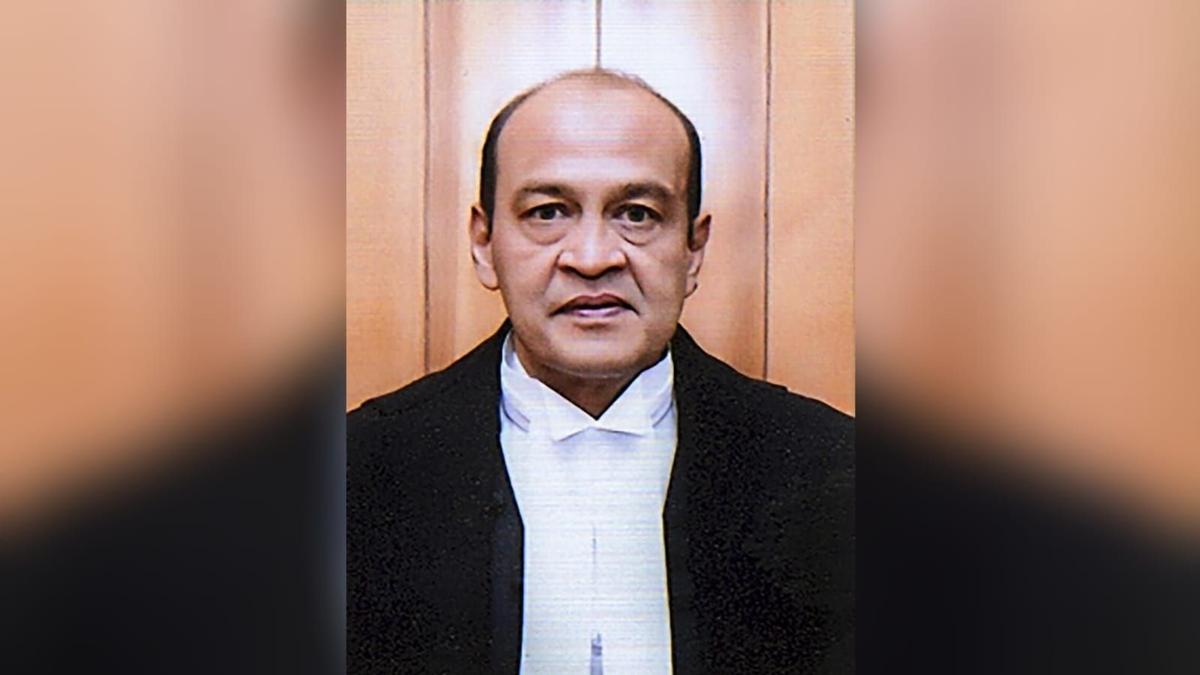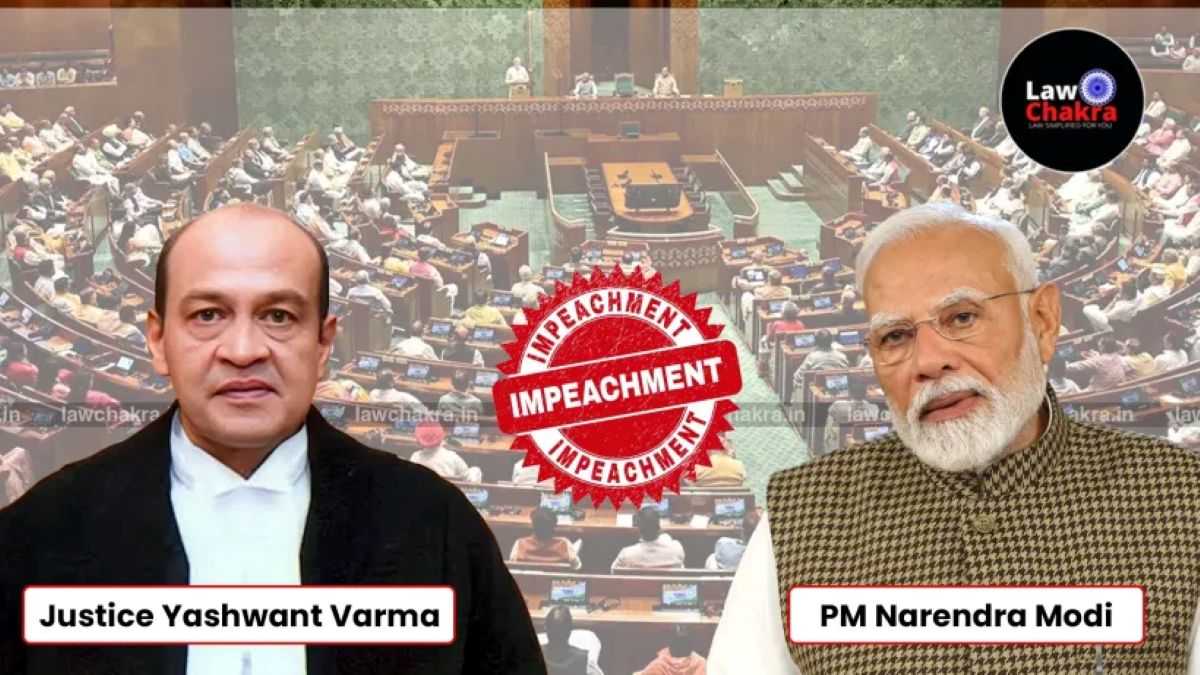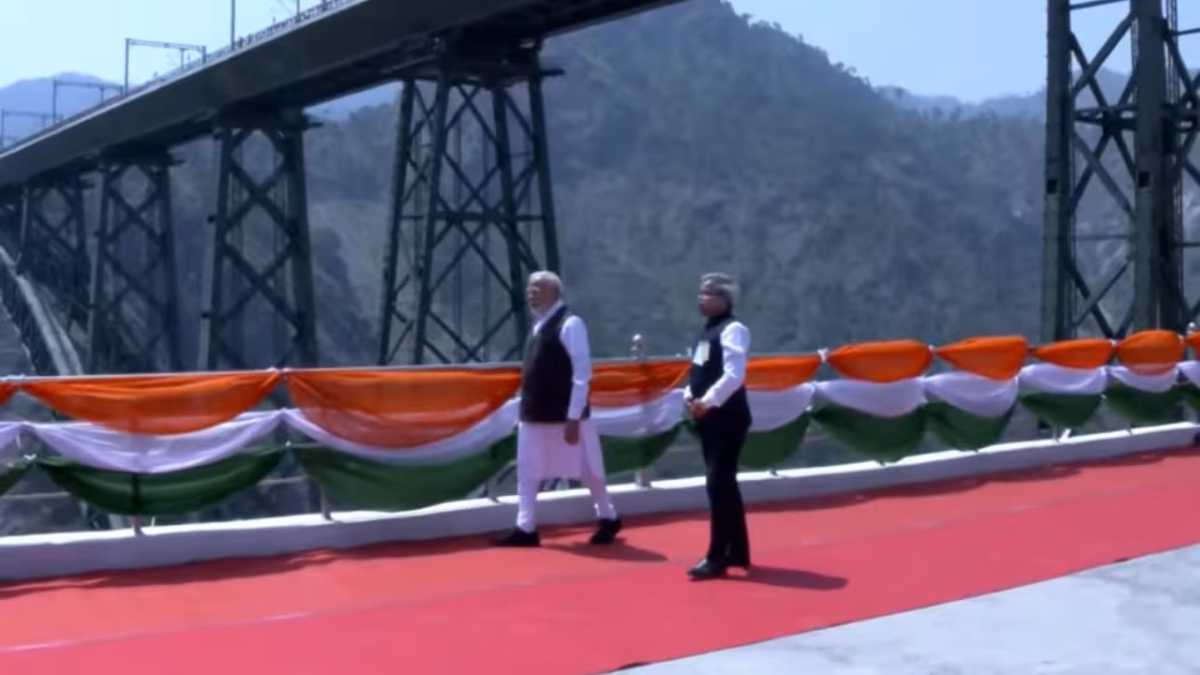
In an unprecedented move, the Centre is set to initiate impeachment proceedings against Allahabad High Court Judge Yashwant Varma following a scandal involving the recovery of unexplained cash from his residence.
Major Judicial Shake-Up in India: What We Know So Far
In a dramatic development that has stirred the Indian judiciary and political circles alike, the Central government is reportedly preparing to bring an impeachment motion against Justice Yashwant Varma. The decision, expected to be tabled during the Monsoon Session of Parliament, follows a series of startling revelations that have raised serious questions about judicial accountability.
According to government sources cited by NDTV, this rare move comes after a substantial amount of cash was allegedly found at Justice Varma’s residence during a fire incident earlier this year. The situation has since snowballed into a full-fledged controversy involving high-level judicial inquiries and mounting public pressure for action.
Judicial Community’s Reaction to Yashwant Varma
The Allahabad High Court Bar Association has welcomed the move towards impeachment, describing it as a “victory for the public” . Bar Association President Anil Tiwari emphasised that the action reinforces public trust in the judiciary.
However, the association had earlier opposed Justice Yashwant Varma‘s transfer back to the Allahabad High Court, expressing concerns over the integrity of the judiciary and demanding a review of all his judgements.
Modi Government likely to bring an impeachment motion against Justice Yashwant Varma in the upcoming Parliament session.
The bar to impeach a judge has been made so high that no one in India has been impeached so far.
Mostly if culpable judges resign themselves and even if… pic.twitter.com/vjVkh5ioCv
— BhartiyNiveshak || Upgrade Your Life || (@BhartiyNiveshak) June 4, 2025
Source: Bhartiy Niveshak
Fire Leads to Shock Discovery at Judge’s Home
The sequence of events began on March 14, 2025, when a fire broke out at Justice Varma’s official residence in Delhi. Firefighters responding to the emergency reportedly found bundles of cash while putting out the blaze. The sudden discovery led to widespread speculation and immediate concern within judicial and political corridors.
Soon after, the Chief Justice of India, Justice D.Y. Chandrachud (followed by Justice Sanjiv Khanna as acting CJI), acted swiftly by constituting a three-member in-house inquiry committee to investigate the allegations against the judge. Justice Varma was relieved of all judicial responsibilities pending the probe.
Read Also: Sharmistha Panoli Case: Calcutta High Court Denies Bail, Emphasizes Boundaries of Free Speech

Source: Law Chakra
In-House Inquiry Completed, Report Sent to President
The three-judge committee has since completed its investigation and submitted its findings to the Chief Justice, who forwarded the report to the President of India. The report’s contents remain confidential, but sources say it provides a strong enough basis to begin impeachment proceedings in Parliament.
According to Article 124(4) and Article 217 of the Indian Constitution, a judge of the High Court can be removed only through a rigorous impeachment process involving both Houses of Parliament. Such a step is rare and has only been attempted a few times in India’s history.
Political and Legal Repercussions
The government’s move to initiate an impeachment motion is expected to become a focal point of the Monsoon Session, which is likely to begin in July. Senior government officials are reportedly already working on drafting the motion, which requires signatures from at least 100 MPs in the Lok Sabha or 50 in the Rajya Sabha before it can be admitted.
This move is not only significant from a legal standpoint but also politically charged. Opposition leaders have demanded full transparency on the findings of the judicial panel, while some members of the ruling party have hailed the step as a necessary move to restore faith in the judiciary.
Bar Associations React: “A Victory for the People”
The legal fraternity has also weighed in on the issue. The Allahabad High Court Bar Association welcomed the government’s decision, calling it a victory for public accountability and a sign that no one is above the law.
Bar Association President Anil Tiwari stated, “The judiciary is the last hope for justice in a democracy. If even one judge is suspected of wrongdoing, it shakes the people’s trust. This impeachment motion is a step in the right direction.”
Interestingly, the Bar Association had earlier opposed Justice Varma’s transfer from the Delhi High Court back to the Allahabad High Court. Members had staged protests and called for a review of all his past verdicts, claiming that a deeper investigation into his conduct was necessary.
Legal Experts: High Bar for Impeachment
Despite the seriousness of the charges, legal experts warn that successfully impeaching a judge in India is no easy task. Former Attorney General Mukul Rohatgi said in an interview that the impeachment process is “cumbersome and rarely effective,” noting that no judge has ever been removed through impeachment in India, even though several motions have been initiated in the past.
“The process needs to be more transparent and efficient,” Rohatgi added. “Judicial integrity is non-negotiable, but we also need systems that are not bogged down by procedural delays.”
Past Attempts at Judicial Impeachment in India
India’s constitutional framework allows for the removal of judges only through impeachment by Parliament, a provision that aims to protect judicial independence but also makes accountability difficult.
Only a handful of impeachment proceedings have ever been attempted:
- Justice V. Ramaswami (1993): The first-ever impeachment motion against a Supreme Court judge. It failed in the Lok Sabha.
- Justice Soumitra Sen (2011): The Rajya Sabha passed the motion, but he resigned before the Lok Sabha could vote.
- Justice P.D. Dinakaran: Resigned amidst corruption allegations before the motion proceeded.
These examples highlight how challenging it is to remove a sitting judge—even in cases involving serious allegations.
Transparency, Trust, and the Road Ahead
The motion against Justice Yashwant Varma is being seen as a test case for India’s commitment to judicial transparency. If Parliament does indeed move forward with the impeachment and secures the required two-thirds majority in both Houses, it could set a precedent for how allegations against members of the judiciary are handled in the future.
At the same time, the process must be carried out with utmost fairness and due process, avoiding any perception of political vendetta. Public trust in the judiciary hinges on the belief that judges are impartial and above reproach, and any deviation from this principle can have serious consequences for India’s democratic institutions.
Public Opinion: Mixed Yet Engaged
Social media and public discourse around the issue have been intense. While many citizens have supported the move as a necessary step towards accountability, others have raised concerns about the lack of transparency surrounding the findings of the in-house judicial committee.
Legal commentators and civil society groups have urged the government to make public the relevant findings, at least in part, to prevent the spread of misinformation and to maintain public confidence in the process.
Conclusion: A Defining Moment for India’s Judiciary
As the Monsoon Session of Parliament approaches, all eyes will be on how the impeachment motion unfolds. Whether or not the motion ultimately leads to the removal of Justice Yashwant Varma, the move sends a clear message: accountability must prevail, even at the highest levels of the judiciary.
The outcome could reshape public perception of the legal system and influence how future allegations against judges are handled. For now, the nation watches closely as democracy takes another crucial step toward transparency and justice.
Learn more about Justice Yashwant Varma and follow us on Prime Feeds for the most recent updates.







